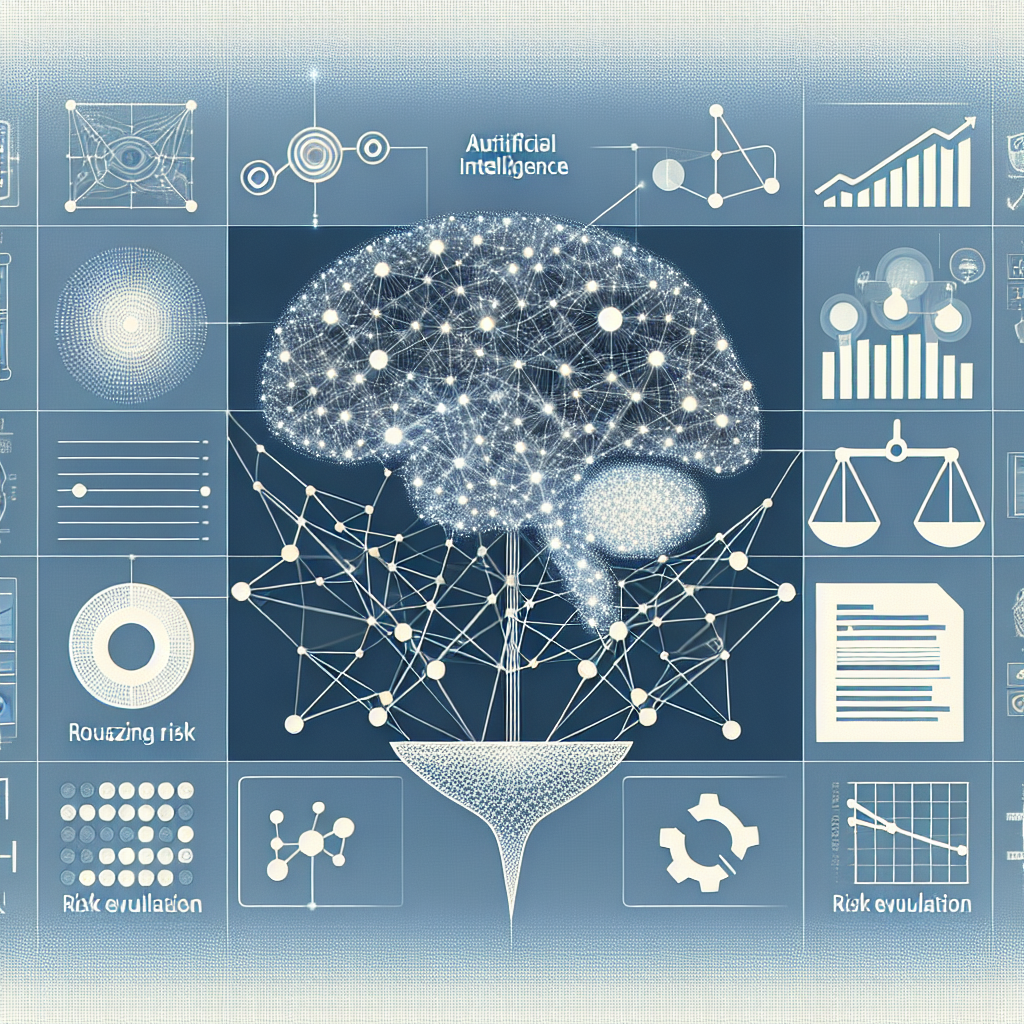Leveraging AI for Project Risk Assessment
In today’s fast-paced business environment, project managers are constantly under pressure to deliver projects on time and within budget. One of the key challenges they face is assessing and managing project risks effectively. Traditional methods of project risk assessment involve manual processes that are time-consuming and prone to errors. However, with the rapid advancements in artificial intelligence (AI) technology, project managers now have a powerful tool at their disposal to enhance their risk assessment capabilities.
AI offers a range of benefits for project risk assessment, including increased accuracy, speed, and scalability. By leveraging AI algorithms and machine learning techniques, project managers can analyze vast amounts of data to identify potential risks and develop strategies to mitigate them. AI can also help project managers to predict future risks based on historical data and trends, enabling them to proactively address potential issues before they escalate.
One of the key advantages of using AI for project risk assessment is its ability to process and analyze data in real-time. Traditional risk assessment methods often rely on static data sets that may become outdated quickly. In contrast, AI algorithms can continuously analyze incoming data to provide up-to-date insights into project risks. This real-time analysis allows project managers to make informed decisions quickly and adapt their risk management strategies as needed.
AI can also help project managers to identify hidden risks that may not be immediately apparent. By analyzing complex data sets and patterns, AI algorithms can uncover correlations and trends that human analysts may overlook. This can enable project managers to anticipate and address risks that may have otherwise gone unnoticed, reducing the likelihood of project delays and cost overruns.
Another key benefit of leveraging AI for project risk assessment is its ability to automate repetitive tasks. AI-powered tools can streamline the risk assessment process by automating data collection, analysis, and reporting. This frees up project managers to focus on strategic decision-making and problem-solving, rather than spending valuable time on manual tasks. By automating routine risk assessment activities, AI can help project managers to improve efficiency and productivity, enabling them to deliver projects more effectively.
AI can also enhance the accuracy of project risk assessment by reducing human bias and error. Traditional risk assessment methods are often subjective and rely on the judgment of individual experts. In contrast, AI algorithms are objective and data-driven, providing more consistent and reliable risk assessments. By removing human bias from the equation, AI can help project managers to make more informed decisions based on data-driven insights, leading to better risk management outcomes.
In addition to improving the accuracy and efficiency of project risk assessment, AI can also enhance the scalability of risk management efforts. AI-powered tools can analyze large volumes of data quickly and effectively, allowing project managers to assess risks across multiple projects simultaneously. This scalability enables project managers to prioritize and allocate resources more effectively, ensuring that they can address the most critical risks first. By leveraging AI for project risk assessment, organizations can enhance their risk management capabilities and improve project outcomes.
FAQs
Q: How can AI help project managers to assess project risks more effectively?
A: AI can help project managers to assess project risks more effectively by analyzing vast amounts of data to identify potential risks and develop strategies to mitigate them. AI algorithms can also help project managers to predict future risks based on historical data and trends, enabling them to proactively address potential issues before they escalate.
Q: What are the key benefits of leveraging AI for project risk assessment?
A: Some of the key benefits of leveraging AI for project risk assessment include increased accuracy, speed, scalability, automation of repetitive tasks, reduction of human bias and error, and enhanced scalability of risk management efforts.
Q: How can AI help project managers to identify hidden risks?
A: AI can help project managers to identify hidden risks by analyzing complex data sets and patterns to uncover correlations and trends that human analysts may overlook. This can enable project managers to anticipate and address risks that may have otherwise gone unnoticed, reducing the likelihood of project delays and cost overruns.
Q: How can AI improve the scalability of risk management efforts?
A: AI can improve the scalability of risk management efforts by analyzing large volumes of data quickly and effectively, allowing project managers to assess risks across multiple projects simultaneously. This scalability enables project managers to prioritize and allocate resources more effectively, ensuring that they can address the most critical risks first.
Q: What are some examples of AI-powered tools that can help project managers with risk assessment?
A: Some examples of AI-powered tools that can help project managers with risk assessment include predictive analytics software, risk modeling tools, and automated risk assessment platforms. These tools leverage AI algorithms and machine learning techniques to analyze data and provide insights into project risks.

